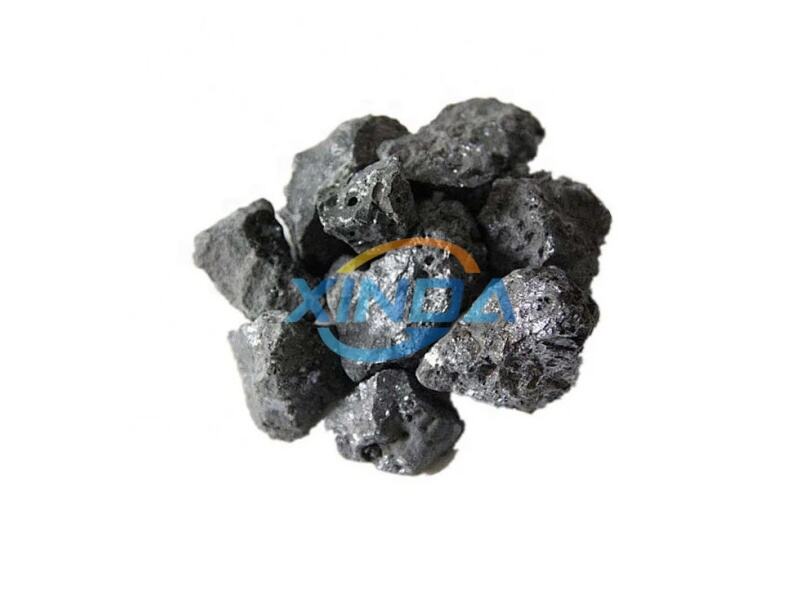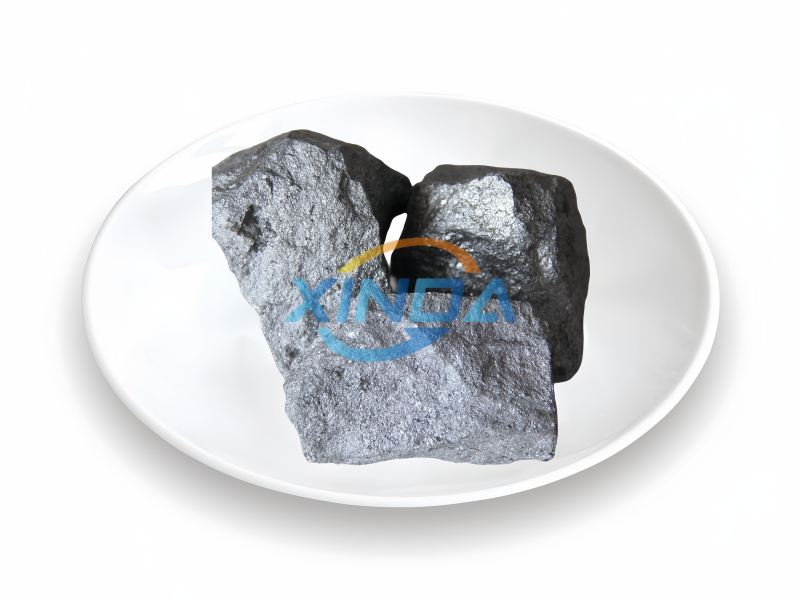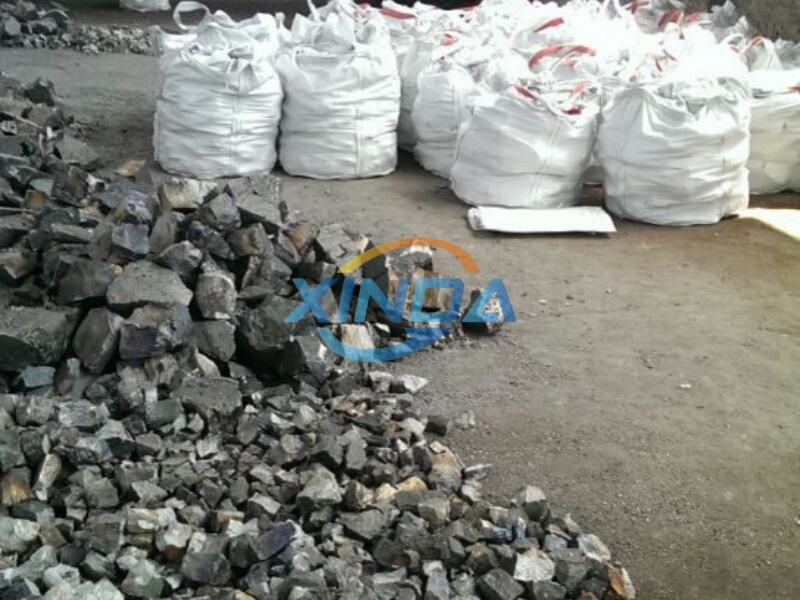Silicon carbide is a unique material that comes in many different shapes and styles because of its great properties. Its abbreviation is SiC. It is a material made by combining silicon and carbon atoms in some special manner. Silicon carbide is the hardest and most durable of all hard ceramics. It is far more heat, chemical and wear resistant than most metals or ceramics. It is also electrically conductive and has different colors as well, changing the designs. In this article, we are going to deepen our understanding in Silicon Carbide and its utility for people used it as part of their daily life or industries.
Silicon carbide is a compound that has been around for awhile. But it is only in the last decade or two that scientists and engineers have gained a greater appreciation for this phenomenon, studied its characteristics more intently, and discovered new ways to harness. Its capacity to withstand extremely high temperatures, even surpassing the 2800 degrees Celsius. This impressive characteristic of silicon carbide makes it perfect for applications where high temperatures are critical, such as in furnace linings, rocket components, and cutting tools. Silicon carbide does not expand as much when it is heated, or contract as much when cooled. This makes it resistible to flattening and gives contains its shape and supports more than most other materials. Silicon carbide can also be made into thin, diamond-like films that protect electronics from heat and stress.
Silicon carbide has several attractive properties that make it a good candidate for many different applications. For a simple example, it is super hard and tough too that makes ideal for cutting high hardness surfaces such as metals or stones or glass etc. It is also durable and corrosion resistant that makes it an ideal material for producing components which are meant to last longer in challenging environments, like pumps, valves and bearings. Silicon carbide is also a very good heat and electricity conductor, for which it can be found in electronics devices such as sensors, power supplies or transistor(&: oh their chemistry! What is more, silicon carbide can also work with other materials to form new high-performance composite ones for unique features like low weight or better thermal conductivity.

It and can be applied to a variety of areas including the aerospace, automotive, defense, energy medicine and telecommunications markets. Silicon carbide has many other industrial applications -- it is used as an abrasive in circuit boards and locomotive disk brakes, among computer electronic devices -- but the substance also helps create aerospace parts that need to endure high temperatures and pressures such as turbine blades, heat shields or radar dome. The automotive industry, where it's employed to produce brake pads and other critical areas of the engine Exodus process because they need heat strenuous & wear resistance. Silicon carbide is used to make armor plates, radomes, and missile guidance systems— those interfaces of human security that must be unsurpassed in quality by anything else. Silicon carbide is also a key ingredient in advanced battery materials and could become an important material for pressure-less sintering. Pressure less silicon filing can be used to make efficient solar panels, electric motors which need high energy efficiency under stress. Silicon carbide is used in medicine to make artificial joints, dental implants, and other tools that can be safely implanted into a patient. Finally, in telecommunications: SiC is used to make high-frequency devices laser diodes light-emitting एNd optical fibers that are positioned with exactness and at a distance of signal generation or reception without any loss.

Silicon carbide is poised for use in many more applications as researchers develop new ways to save energy and make it easier to deploy the material masses. Scientists are looking for ways to make bigger and better specimens, for instance of silicon carbide. This is critical as even the slightest imperfections can change how well the material works. They are also trying to figure out how silicon carbide can be better made to interact with other materials that it sticks too as then the aerospace parts stay cooler and last longer in use. In addition, researchers are exploring hybrid systems that could integrate silicon carbide with other advanced materials like graphene and carbon nanotubes to add the ability of multiple functionality enhancement.

Silicon carbide is used by several important companies; those include Saint-Gobain, Dow Corning, Cree and ROHM Semiconductor. GaN Systems, Cree and Mitsubishi Electric are just three of the companies operating in this market with silicon carbide power devices; LEDs fabricated from SiC ceramic powders; and radio frequency wafer substrates made using 2-inch or larger single-crystal wafers. They also influence silicon carbide technology through funding research and development, just like every other company or university. One example is pressureless sintered molding (PSM), a new special process developed by Saint-Gobain that can provide complex shapes and high precision of silicon carbide parts. To reduce risk, Dow Corning has developed Sylramic technology to create ceramic composites with excellent toughness and thermal shock resistance. Some of these technologies include Cree's SiC MOSFETs, which can power electronics are more efficient and in a smaller form factor. Finally, ROHM Semiconductor has developed SiC Schottky Barrier Diodes that contribute to greater stability and higher reliability in power supplies.
Xinda manufacturer concentrates on silicon series such as ferrosilicon. calcium silica and ferro silicon magnesium. chrome, high carbon silicon, silica slag, and so on. warehouse has around 5,000 tones. long-term relationships with various steel mills distributors both locally overseas. Covering more than 20 countries regions across the globe, which includes Europe, Japan, South Korea, India, and carbide of silicon.
Xinda Industrial a professional ferro alloy manufacturer, situated in a key iron ore production zone, we benefit from unique resource advantage. Our company carbide of silicon area of 30,000 square meters with registered capital of 10 million RMB. Established for over 25 years, company has 4 submerged arc furnaces and four refinery furnaces. have over 10years export experience, have won the trust customers.
Xinda accredited by ISO9001, SGS other certification. We have modern and thorough chemical inspection and analysis equipment tested analytical methods offer an objective guarantee the production of high-quality products. Strict carbide of silicon inspection and control raw materials. Make pre-production, during production and after the final random inspection. We offer third-party SGS, BV, AHK).
Xinda over 10 years' experience in exporting provides professional services customers. carbide of silicon all kinds of custom products which include special needs such as size, packaging and so on. equipped with most comprehensive set modern production equipment and secured logistic system which assures a speedy and efficient delivery to desired destination within specified time.